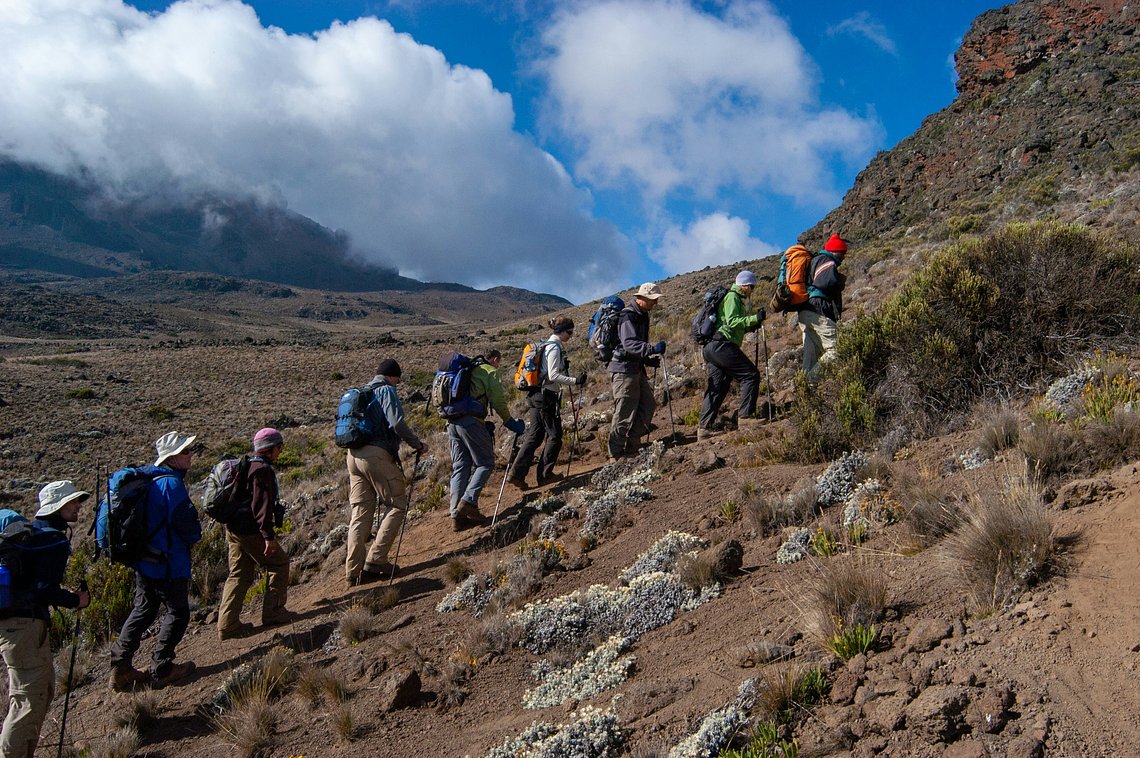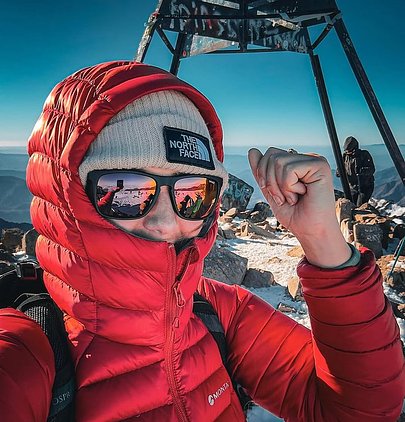How to Train for Kilimanjaro: A Step-by-Step Guide
Train Smart, Climb Strong – Conquer Kilimanjaro with Confidence!

 by Alice Maturin-Baird
·
Tue 18 Mar 2025
by Alice Maturin-Baird
·
Tue 18 Mar 2025
Mount Kilimanjaro, standing at 5,895 meters (19,341 feet), is the tallest mountain in Africa and a bucket-list challenge for many adventurers. While it doesn’t require technical climbing skills, the altitude, long days of trekking, and endurance needed make training essential. Proper preparation will improve your chances of reaching the summit and enjoying the journey. Here’s a step-by-step guide to training for Kilimanjaro.
1. Build Your Cardiovascular Endurance
Trekking up Kilimanjaro means walking for 5-7 hours a day for multiple days at high altitudes. Your body needs to be conditioned for sustained effort over long periods.
Training Tips:
- Engage in aerobic activities like running, cycling, swimming, or stair climbing.
- Aim for 3-5 sessions per week, gradually increasing duration and intensity.
- Include interval training to boost endurance and stamina.
2. Hike with a Loaded Backpack
Your trek will involve carrying a daypack with essentials like water, snacks, and extra layers. Simulating these conditions will prepare you for the real thing.
Training Tips:
- Start with light loads and gradually increase weight up to 10-15 lbs (4-7 kg).
- Train on trails with elevation gain to mimic Kilimanjaro’s terrain.
- Do at least one long hike (6+ hours) per week in varied conditions.
3. Strengthen Your Legs and Core
Strong legs and core muscles will help you power through steep inclines and maintain balance on rocky terrain.
Training Tips:
- Squats, lunges, step-ups, and deadlifts will build leg strength.
- Planks, Russian twists, and leg raises will enhance core stability.
- Train 2-3 times per week, incorporating resistance and bodyweight exercises.
4. Practice Walking at High Altitude
Altitude sickness is a major challenge on Kilimanjaro. If possible, spend time hiking at altitude before your trek.
Training Tips:
- Hike in high-altitude locations (above 2,500 meters) whenever possible.
- If unavailable, use a stair climber or treadmill at an incline.
- Consider using altitude simulation masks or sleeping in an altitude tent.
5. Train for Mental Toughness
Summiting Kilimanjaro is as much a mental challenge as a physical one. Adapting to discomfort and pushing through fatigue is crucial.
Training Tips:
- Train in uncomfortable weather conditions to build resilience.
- Set small goals during training hikes to keep motivation high.
- Use mindfulness techniques like visualization and controlled breathing to stay focused.
6. Test Your Gear and Footwear
Blisters or discomfort from unfamiliar gear can make or break your trek. Train in the same gear you plan to wear on Kilimanjaro.
Training Tips:
- Wear your hiking boots and break them in properly.
- Train in layers to get accustomed to adjusting for temperature changes.
- Use trekking poles during hikes to ease knee strain.
7. Improve Your Hydration and Nutrition Habits
Proper hydration and nutrition will sustain your energy levels and reduce altitude sickness risk.
Training Tips:
- Drink at least 3-4 liters of water daily, mimicking trek conditions.
- Practice snacking on energy-dense foods during hikes.
- Avoid alcohol and excessive caffeine in the weeks leading up to your climb.
8. Follow a Progressive Training Plan
Give yourself at least 8-12 weeks to train. Start with moderate workouts and progressively increase difficulty.
Sample Weekly Training Plan:
Week 1-4:
- 3 cardio sessions (running, cycling, or swimming)
- 2 strength training sessions
- 1-2 short hikes with a loaded pack
Week 5-8:
- 3-4 cardio sessions, increasing duration
- 2-3 strength training sessions
- 1 long hike (5+ hours) with elevation gain
Week 9-12:
- 4 cardio sessions, incorporating uphill workouts
- 3 strength training sessions
- 1 full-day hike with full gear
Final Tips Before Your Trek
- Arrive in Tanzania a few days early to acclimate.
- Get a medical checkup before your trip.
- Maintain a positive mindset and listen to your guide’s advice.
With the right training, Kilimanjaro can be an incredible and rewarding experience. Start preparing early, stay consistent, and enjoy the journey to the Roof of Africa!
If you'd like any more advice get in contact with our expert team via the form on the contacts page!